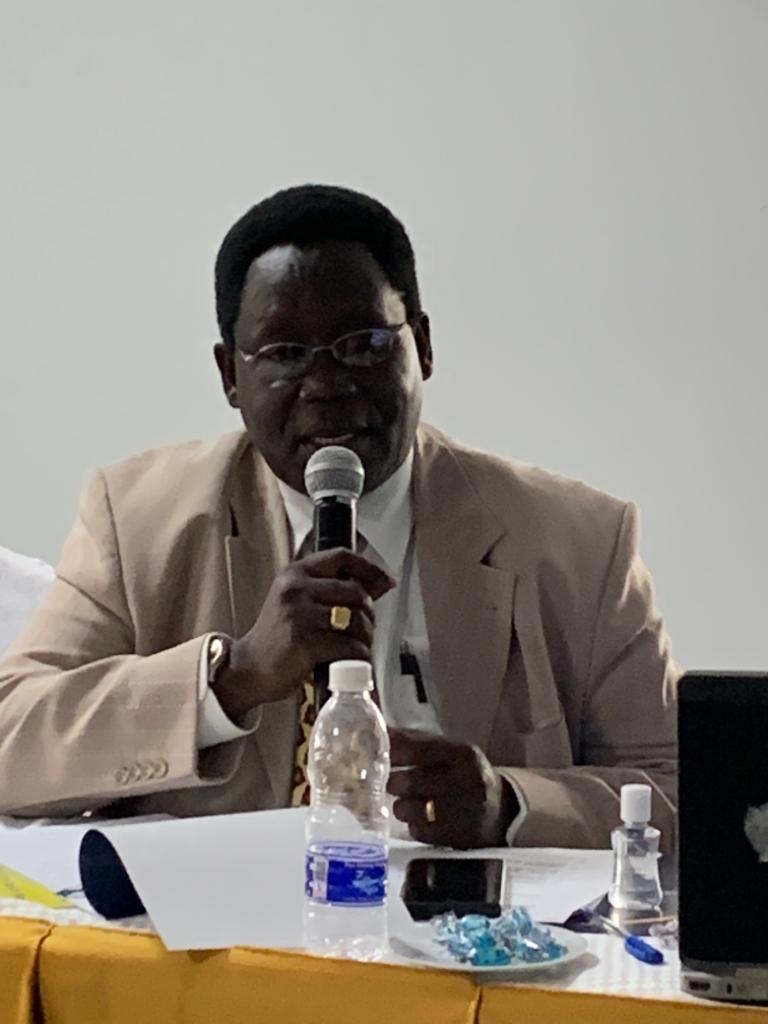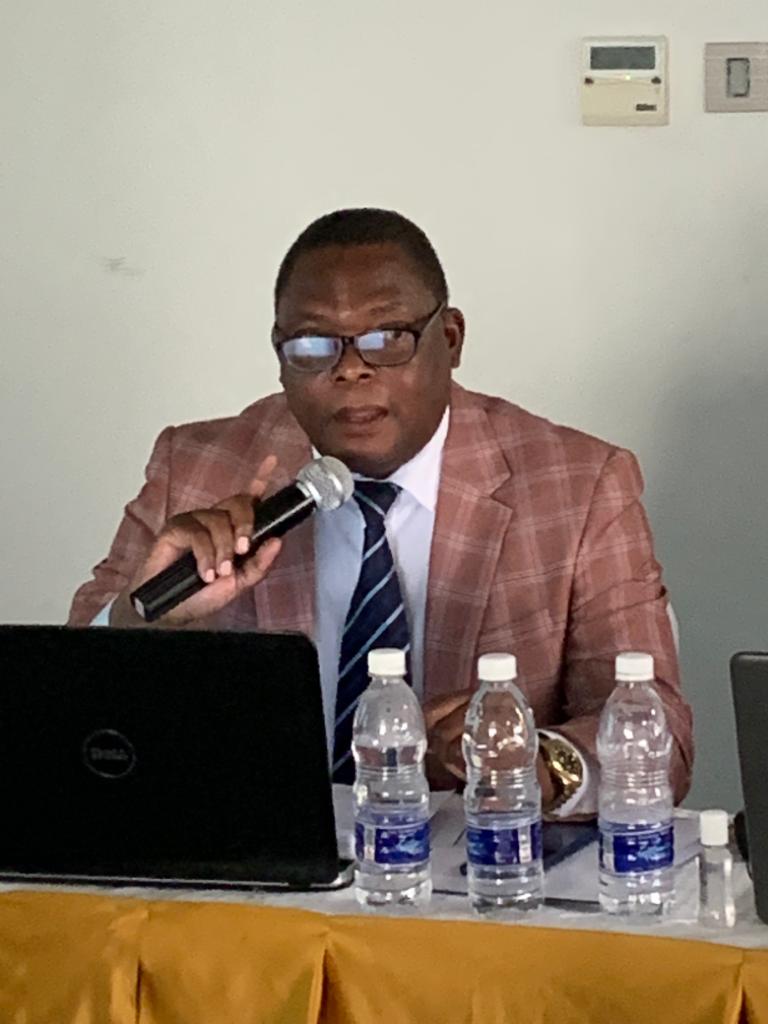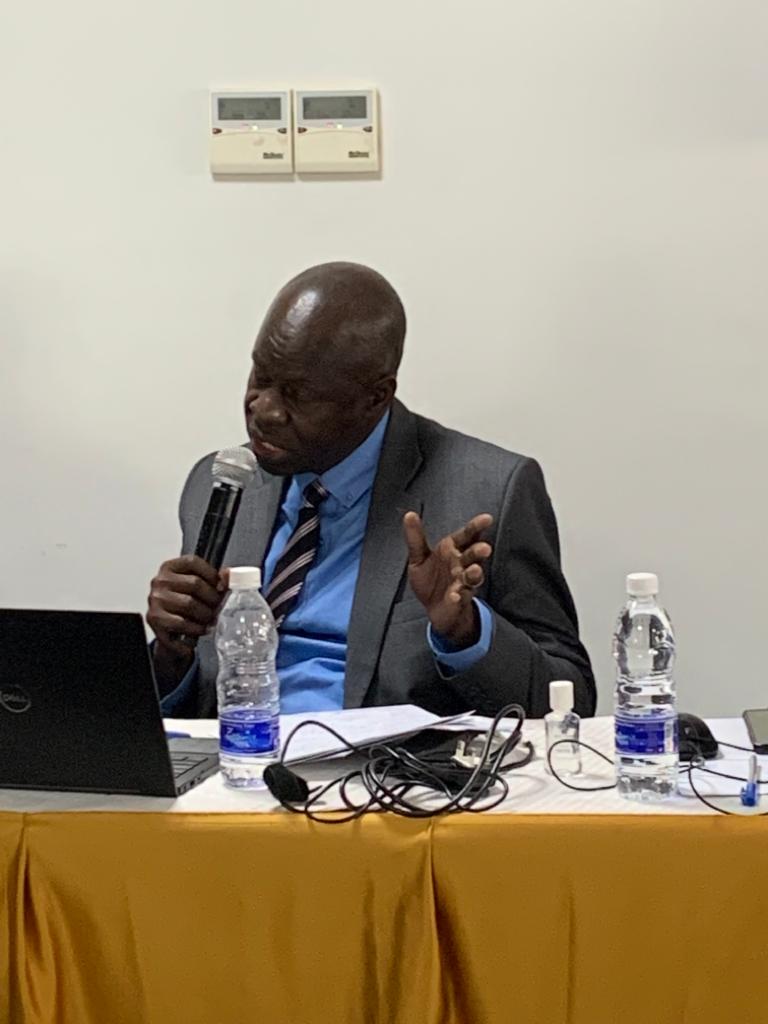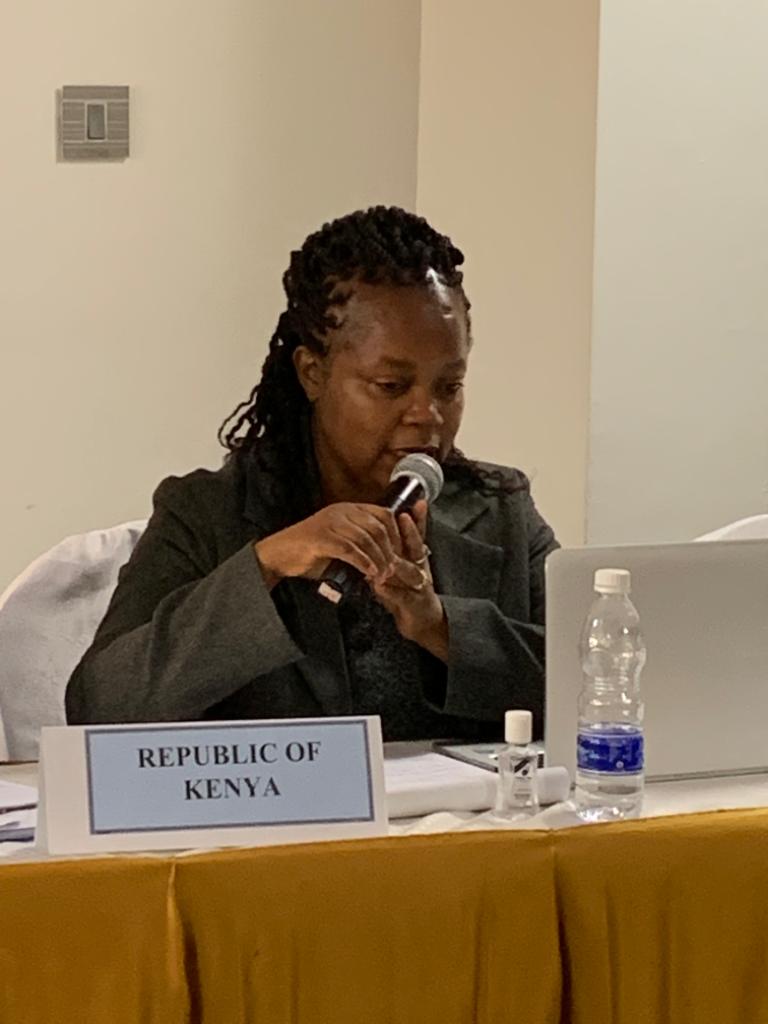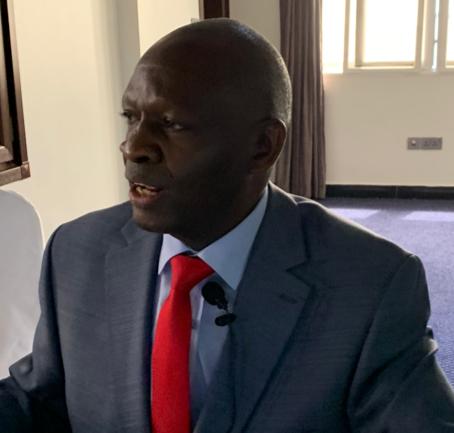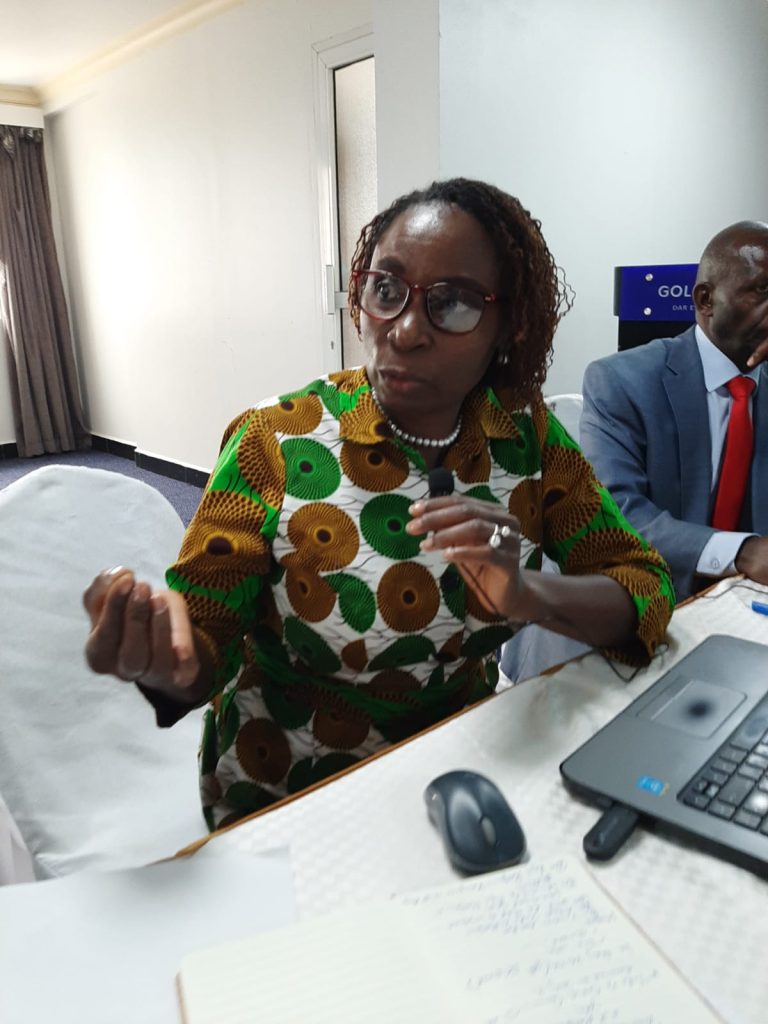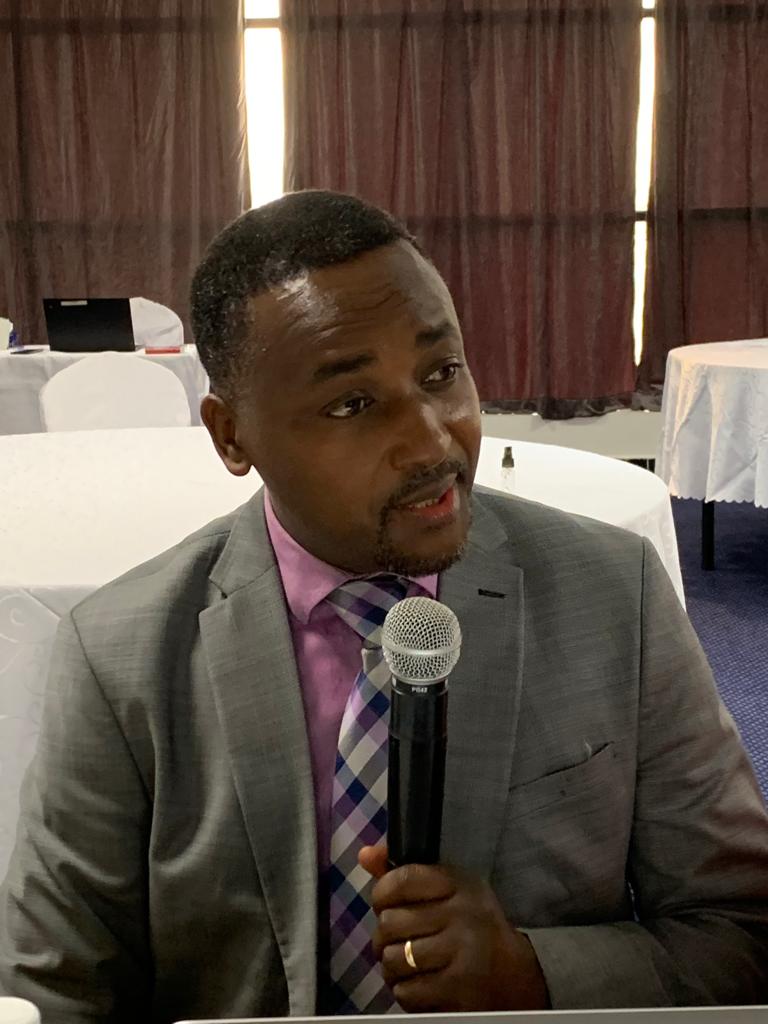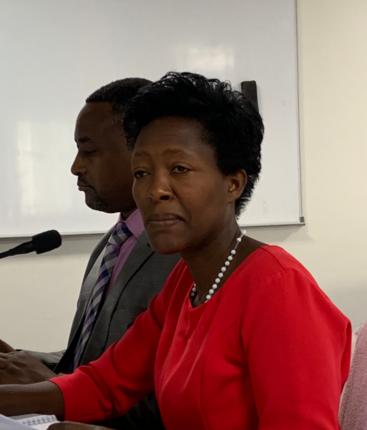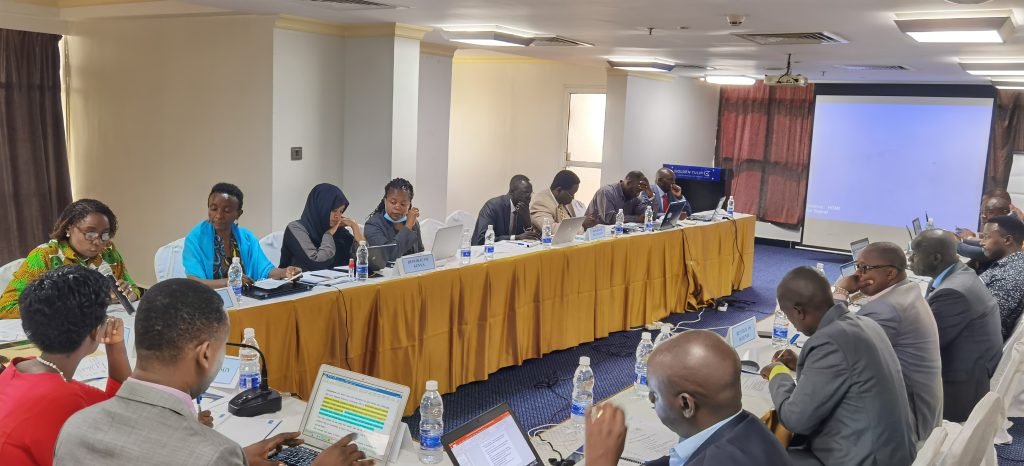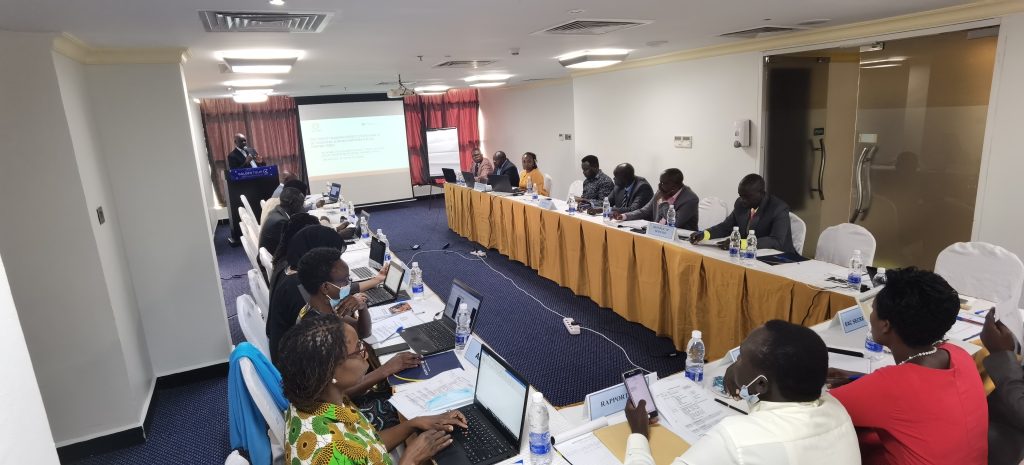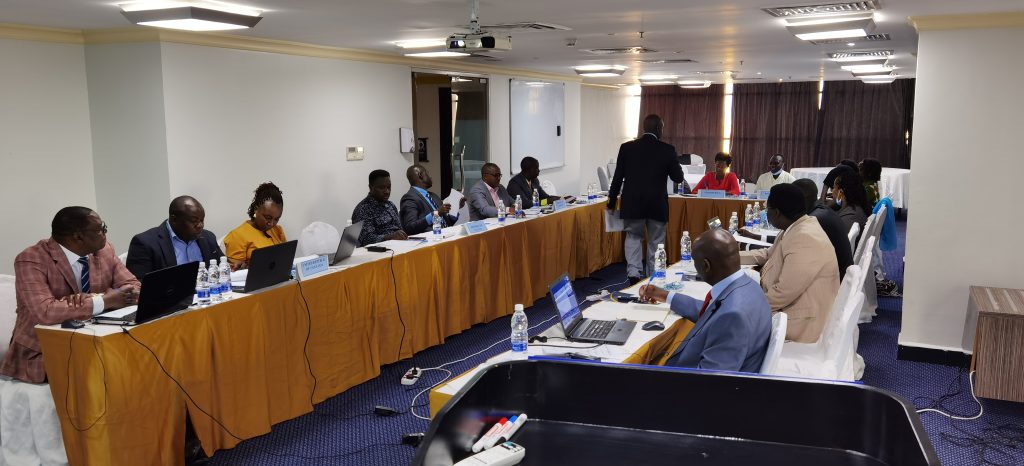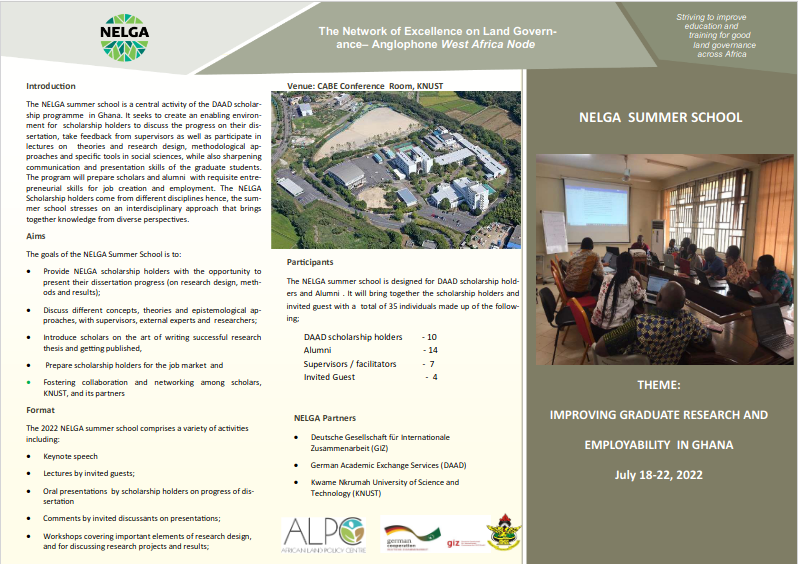Category: Uncategorized
NELGA and Cameroon Land-Related Institutions Join Forces to Enhance Land Governance Capacity
A significant obstacle in Africa has been the lack of human and institutional capacity to implement sustainable land policies. This has impacted numerous land administration and management facets, including surveying, land use planning, land titling, and cadaster. The insufficient quality of academic programmes in African universities and institutions of higher education is one of the primary causes of this issue. In addition, most nations lack the capacity for applied research, monitoring, and evaluation and the data required for effective land policy implementation.
The African Land Policy Centre (ALPC) established the Network of Excellence on Land Governance in Africa (NELGA) to address these issues. NELGA is a partnership between African universities and research institutions that have demonstrated leadership in land governance education, training, and research. The NELGA seeks to improve land governance training opportunities and curricula, promote demand-driven research on land policy issues, connect scholars and researchers across Africa through academic networks, and generate data and information for monitoring and evaluating land policy reforms.
To ensure better coordination of NELGA across the continent, a lead university has been chosen for each AU region; these universities are known as “regional nodes.” The University of Yaoundé 1 has been chosen to facilitate and coordinate the implementation of NELGA activities in Central Africa.
In October 2022, a workshop on evaluation and planning was held in Douala, Cameroon, to assess the quantity and quality of land-related training and the institutional and human competencies of higher education institutions working on land issues. The workshop’s objective was to ensure that land governance is incorporated into land-related training courses and that practitioners and decision-makers have a deeper understanding of land governance.
During the workshop, it became apparent that land-related institutions were not significantly associated with or engaged in NELGA’s activities. To foster knowledge development and sharing, capacity development of land-related institutions, research-policy dialogue, improvement of decision-making processes based on research findings, and the overall improvement of land policy at the continental and national level, it was necessary to increase the involvement of land practitioners working in governmental and non-governmental institutions.
To accomplish this goal, a two-day workshop will be conducted in Yaounde on May 28 and 29, 2023. The workshop aims to bring together land-related institutions operating at the national level in Cameroon to share information about NELGA, collect their needs in capacity and institutional development, design relative focal points, explore means of collaboration from central to regional levels, explore means and axes of collaboration between these institutions and NELGA, and develop a working plan.
After the workshop, land-related institutions should thoroughly understand NELGA’s activities, goals, and vision on a national and regional scale. Their needs in terms of capacity-building and development will be gathered, and a strategy for their implementation will be implemented. The focal points will be identified, their duties and responsibilities will be clarified and consolidated, and an MOU draught will be available for review. Overall, it is anticipated that the workshop will increase the participation of land practitioners in NELGA’s activities, which will contribute to developing national and continental land policy.
NELGA Researchers in Southern Africa Master the Art of Scientific Writing
Scientific writing is important in the development of academia and academic institutions. It is a challenge for postgraduate students and lecturers (supervisors) to write scientific papers, especially for publication in high impact scientific journals. Academics and postgraduate students have found it difficult to develop their scientific writing skills to meet the publication requirements of high impact journals. Lecturers who supervise postgraduate candidates face the daunting task of transferring quality scientific writing skills to the students since writing at postgraduate level is complex. Therefore, strengthening the capacity of lecturers to transfer scientific writing skills effectively improves graduation rates and academic publications.
In an attempt to a Scientific Writers’ workshop was held back in October 2022 at Chaminuka Lodge and Nature Reserves in Lusaka, Zambia. The objectives of the workshop are as follows; i) Improve the quality of scientific writing skills. ii) Assist early researchers working on scientific papers to produce publishable papers. iii) Increase research collaboration among NELGA member Universities and iv) Strengthen research supervision and mentorship skills of academic staff supervising postgraduate students.
The Workshop was a collaboration among Namibian University of Science and Technology (NUST), Network for Land Governance in Africa (NELGA), University of Zambia, and sponsored by GIZ. The University of Zambia hosted the workshop, facilitated by four consultants: Professor Chigbu (Namibia), Professor Chakwizira (South Africa), Dr Pamela Duran Diaz (Germany), and Dr Chavunduka (Zimbabwe). The consultants led each of the sessions that focused on a specific aspect of scientific writing. The areas covered included: H-index and Social Impact factors in scientific academic publication; Strategies of scientific writing skills; Comparing different styles of scientific writing; Conducting effective literature review; Writing scientific articles; Publishing articles in high-ranking journals; Strategies of scientific writing skills; Comparing different styles of scientific writing; Tips on PhD Discourse.
Ten (10) PhD students and one (1) Masters Student registered at various universities also presented summaries of their research papers. Supervisors gave feedback to the students and identified areas of improvement. The main outputs of the workshop included the identification of the members of team to spearhead the development of a scientific writer’/supervisors’ manual. Secondly, the submission of abstracts from each of the participants as a contribution as a chapter a book that will be edited and published.
Stakeholders in the Land Sector Validate the NELGA Strategy
Addis Ababa, November 23, 2022 (ECA): Land stakeholders in Africa, through the support of the Africa Land Policy Centre at the United Nations Economic Commission for Africa (ECA), held a validation workshop on the Network of Excellence on Land Governance in Africa (NELGA) strategy for 2023 – 2027. The five-year plan provides a road map to drive NELGA’s operations and programming on the AU Agenda on Land and ensure the network’s sustainability.
The NELGA strategy identifies priority actions and measures to ensure adequate implementation of its programming areas, increase knowledge exchange and communication, and improve, scale up and coordinate sustainable actions among network research areas in policy spaces.
The strategy was developed through an inclusive, consultative and participatory approach with NELGA members, government and land stakeholders. Joan Kagwanja, Coordinator of the ALPC at ECA, applauded the existence of the strategy, which guides the network to document and maximize positive land administrative systems for Africa. She shared that the document serves as a crucial execution tool for NELGA to identify and implement programming actions that address various land challenges and thereby contribute to an improved land governance landscape in Africa.
The strategy was developed with technical support from ECA and funded by the German Development Cooperation.
NELGA Looks into Cameroon Land-Labour Market
Investigates New Ways to Connect New Land Graduates to the Labour Market
“African problems require African solutions. Academic skills, industry needs and employment realities must be in sync and supported by relevant land policies or economic frameworks which jointly support the development of our region.”
Rose Chindji, NELGA Support Coordinator and Researcher at the University of Yaounde 1
The workshop on Land-related Labour Market organised by the Network of Excellence on Land Governance in Africa (NELGA), Central Africa hub in Cameroon, kicked off in Yaoundé on October 21 with a definite call for African countries to develop a road map on the integration of land professionals into the workforce, and inclusive land employment mechanisms, especially for women and youth.
” Many Africans with advanced qualifications find that their university degrees are simply not enough to land a job in the market. We need commitment from our tertiary and government bodies to ensure the eradication of divergence between labour market needs and skills of graduates in Africa,” Cameroons Commissioner of Environment and Nature Protection, Paul Tchawa told participants at the workshop held in Yaoundé. Tchawa said that “working on land and employment requires collaboration with all stakeholders to reflect on how to bridge the gap between the needs of employers in the land sector and the skillset and knowledge graduates acquire during their studies.”
The convergence, which focuses on the land-labour market challenges for young graduates, is hosted by the University of Yaoundé 1, NELGA’s regional hub for the region, with the support of the Federal Ministry for Economic Cooperation and Development (BMZ) and the German Development Cooperation (GIZ). The African Center for Economic Transformation reveals that nearly 50% of current university graduates in Africa do not find jobs and the continent is expected to absorb 122 million new entrants to the labour force during this decade. African education systems have been oriented towards obtaining a qualification rather than acquiring skills and competencies to promote successful integration into work.
Representatives from the government of Cameroon, land researchers and stakeholders discussed strategies to reduce the mismatch between the labour market needs and skills of many land graduates in Africa. NELGA’s Programme Manager, Desire Tchigankong, explains that the mismatch between the labour market needs and skills of many graduates in Africa is highlighted by the GIZ-Strengthening Advisory Capacities for Land Governance in Africa (SLGA). “To meet the requirements of the employing organisations, students must acquire the relevant knowledge and skills to effectively contribute to better land governance systems and economic development,” explains Tchigankong.
Participants discussed and designed a roadmap for Cameroon to improve employment quota in the land-labour market, especially for women and the youth, and improve land industry labour integration in the Central Africa region.
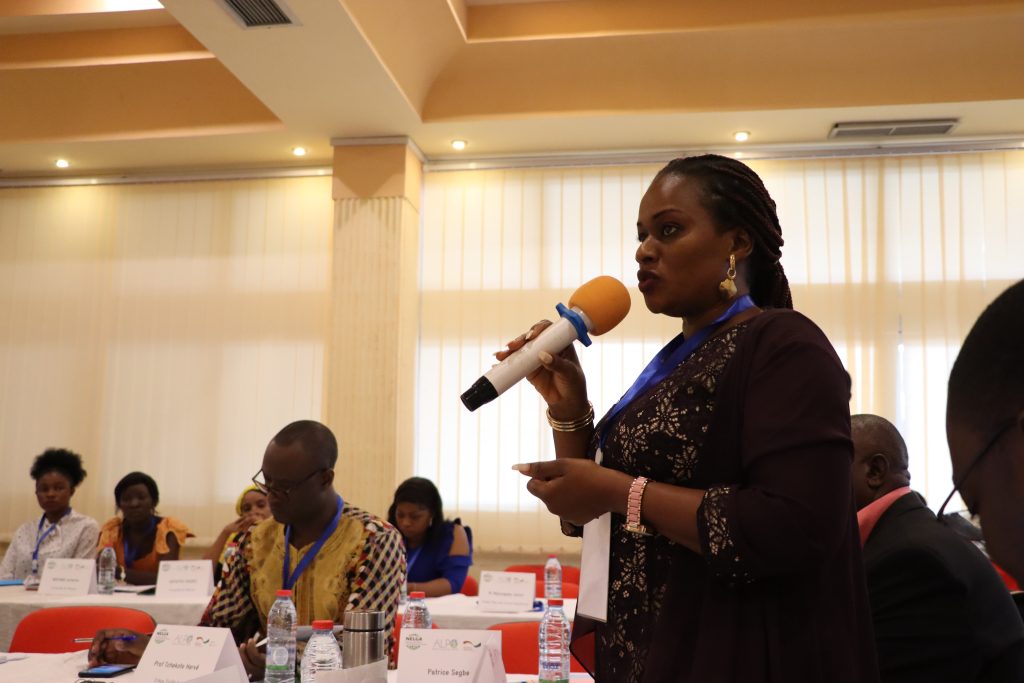
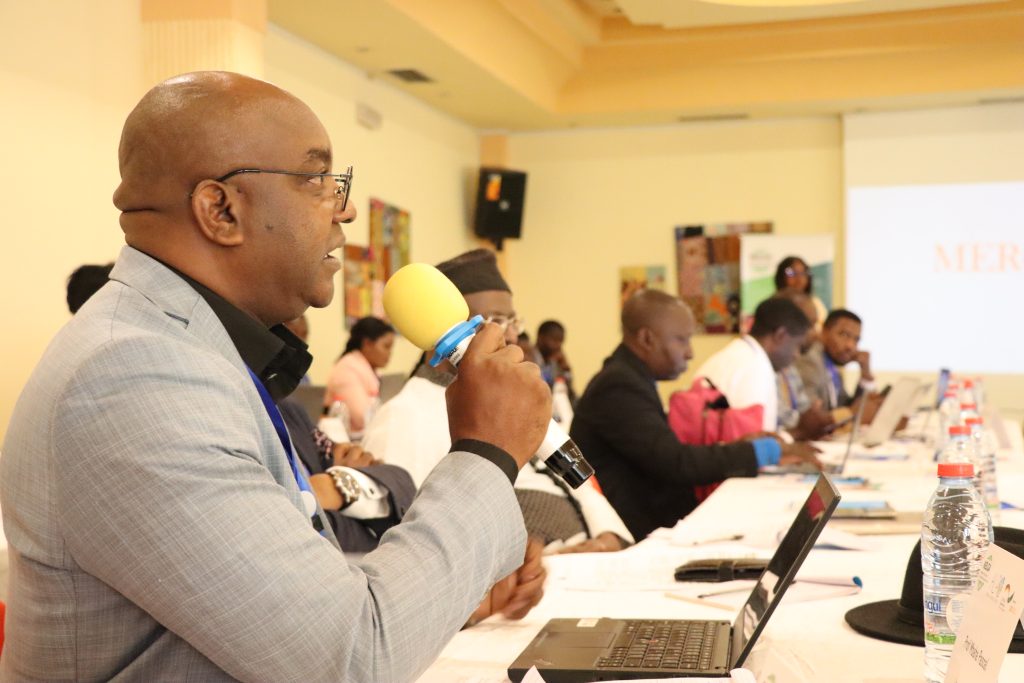
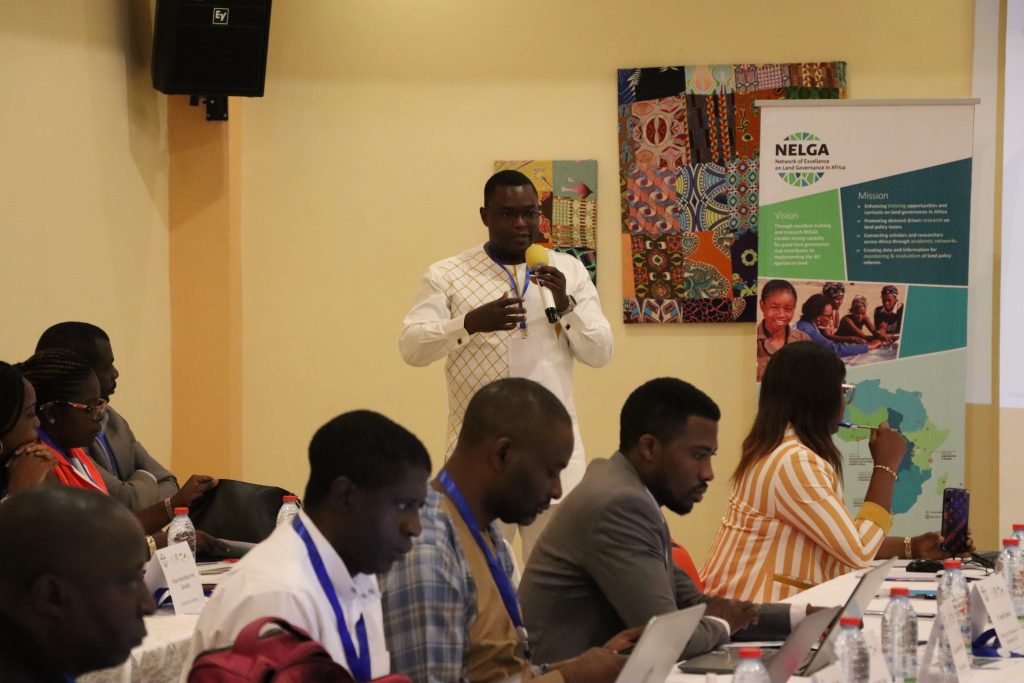
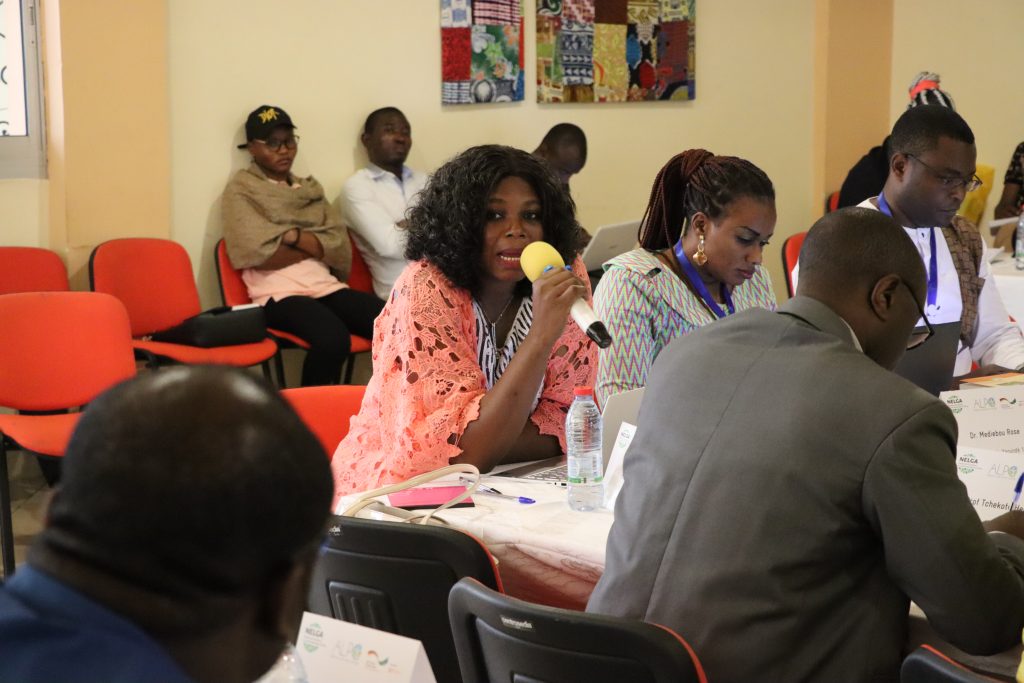
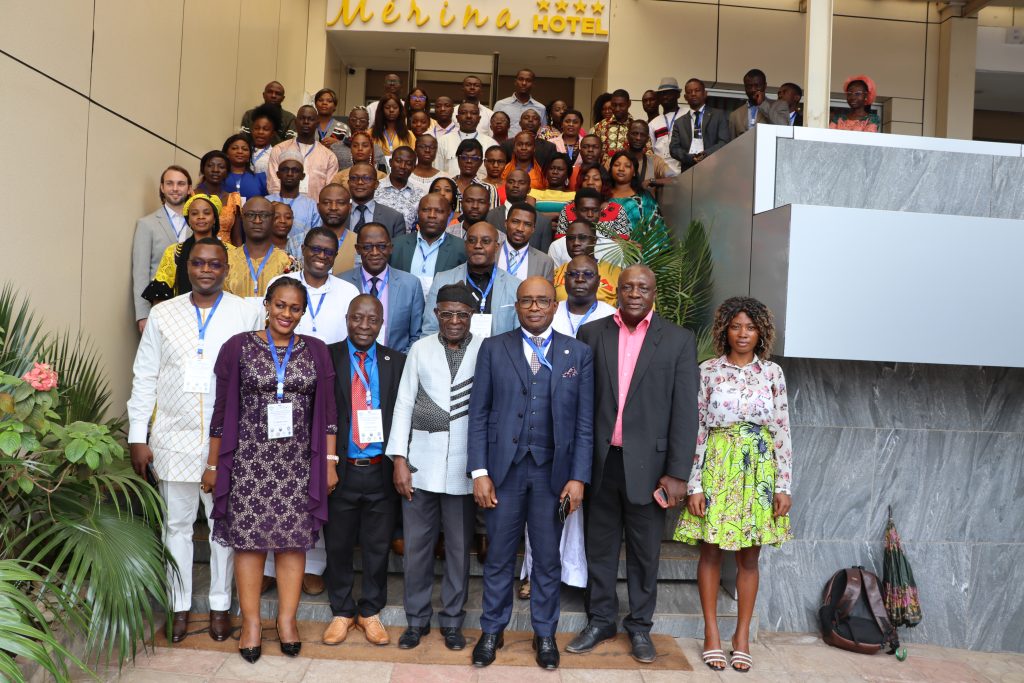
NELGA Review Meeting: Taking stock of 5 years of Progress in Meeting the AU Land Agenda
Five years after the launch of the Network of Excellence on Land Governance in Africa (NELGA), some 20 representatives of the network gathered in Windhoek from 27-30 September 2022 to discuss progress in implementing the African Union (AU) Land Agenda. Many agreed that much progress had been made in building the capacity of institutions of higher learning and research to enhance training and research that responds better to the demands of member states. It is now essential to focus on scaling up curricula development, training, research and dissemination of knowledge on priority issues.
The planning and review meeting offered an excellent opportunity to take stock of how NELGA capacity building, data repository, knowledge management, and policy engagement actions support national and regional land gaps and priorities in meeting the AU Land Agenda. The meeting, convened by AUC-ECA-AfDB’s African Land Policy Centre, marked the first official internal gathering of the continental network since the onset of the COVID-19 pandemic.
The members commended the outcomes and wealth of knowledge from years of work, especially on policy engagement, and encouraged members to develop plans that facilitate engagement with key decision makers, including all arms of government, civil society, etc. In planning the future of the network, members called on ALPC, its technical partners, GIZ and the nodes to develop agreements among all parties to facilitate operations and ensure result convergence on land governance priorities on the continent. Participants called on the NELGA secretariat to develop a continental research agenda and policy dialogue framework based on identified priority areas by the AU.
The meeting hosted by Namibia University of Science and Technology (NUST), the NELGA node for Southern Africa, had participants from NELGA regional hubs, implementing partners, academic institutions, GIZ as a technical partner and international organisations. The nodes showcased strides in developing new academic programs, two journals hosted by NELGA North Africa and East Africa, research centres, and land governance innovative tools in the land policy spaces across West Africa, East Africa, North Africa, Central Africa, and South Africa.
The ALPC Coordinator Joan Kagwanja celebrated the achievements; encouraged integrated and participatory approaches to land governance issues, emphasised the network’s importance in meeting the continent’s needs; and called on NELGA to undertake action research that would address emerging land issues and whose results and recommendations could be presented at the AU Specialized Technical Committee on Agriculture, Rural Development, Water and Environment The meeting also examined preliminary findings and provided inputs to the NELGA strategy to ensure the network remains sustainable and scalable.
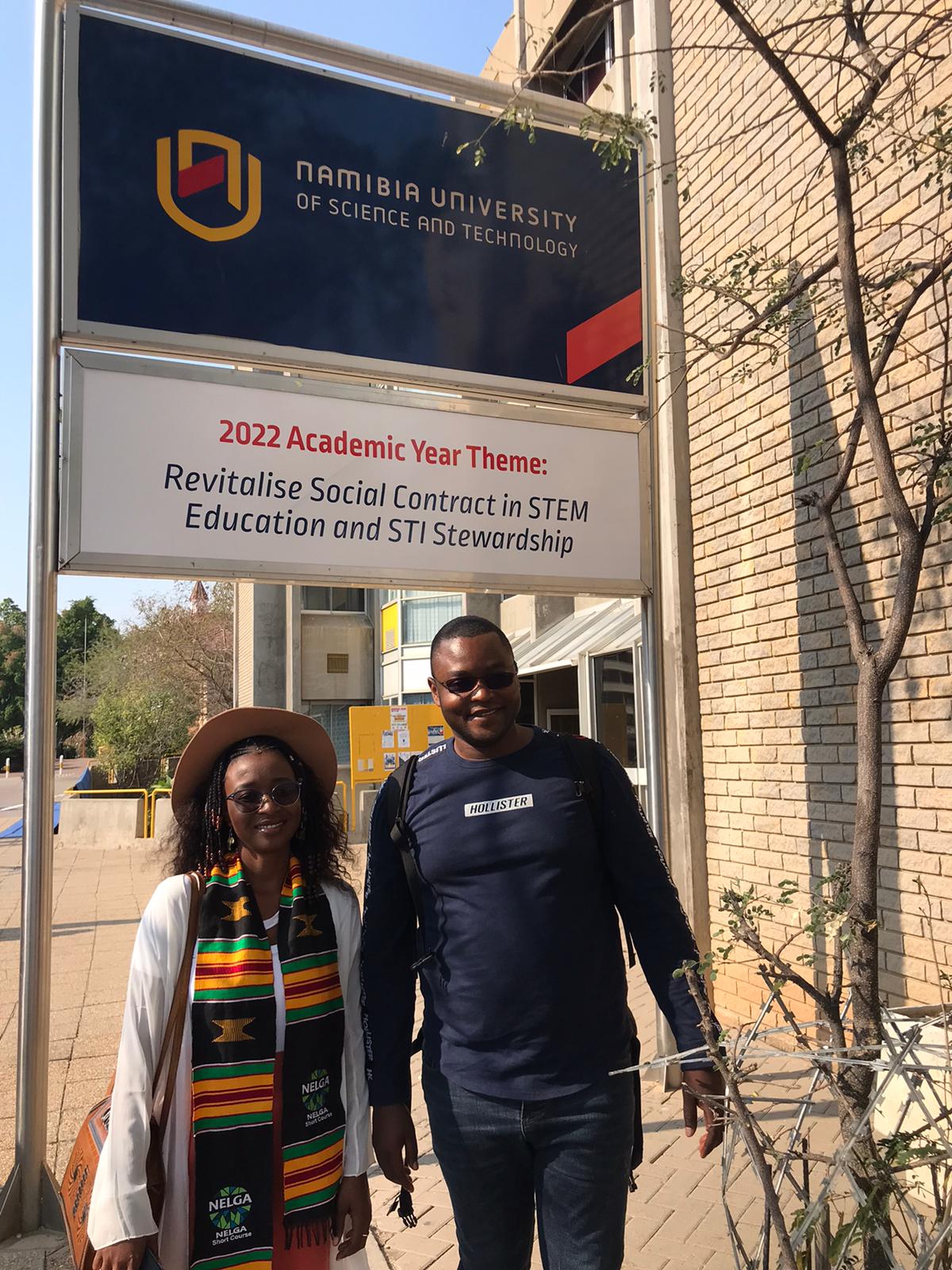
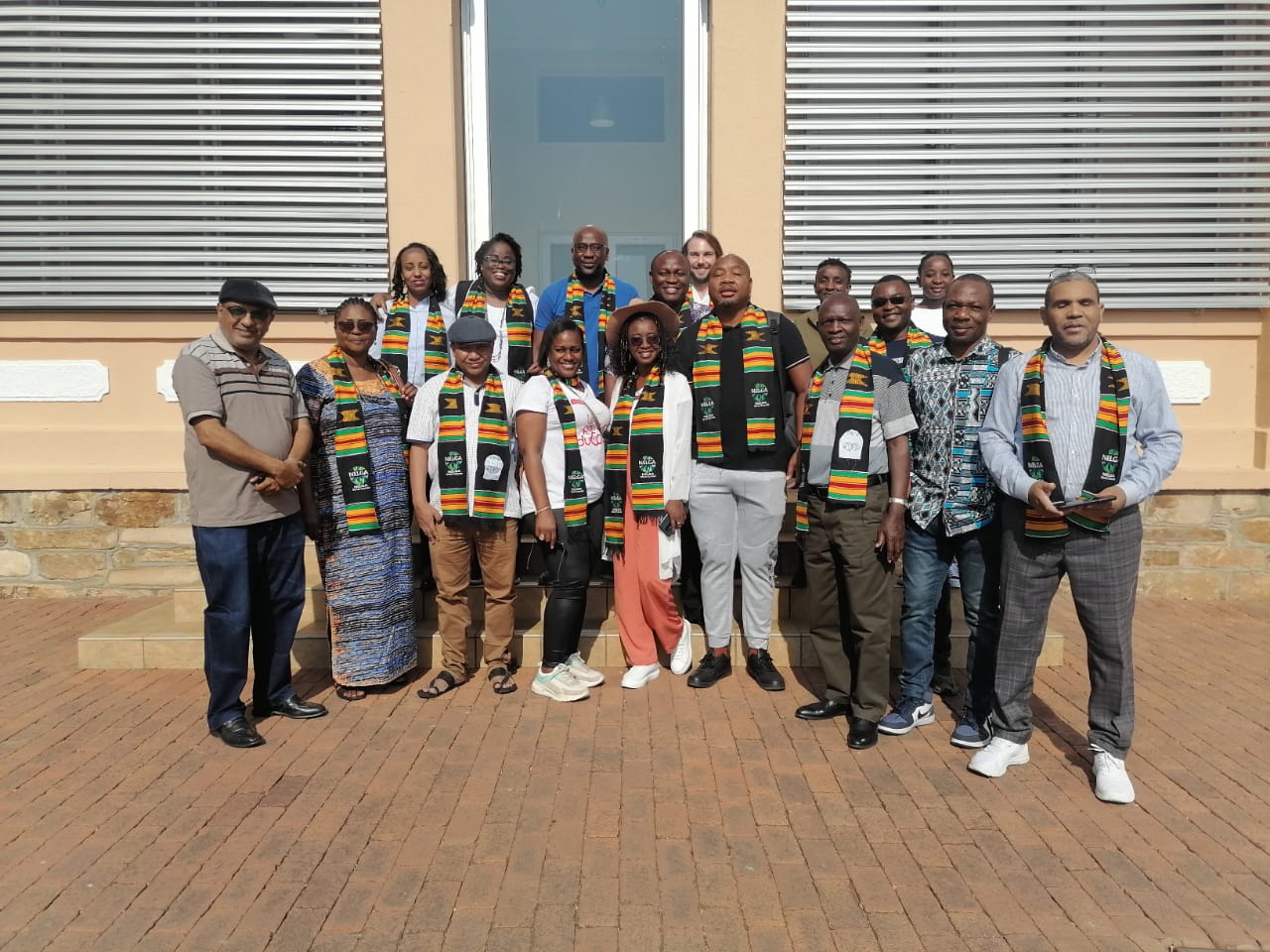
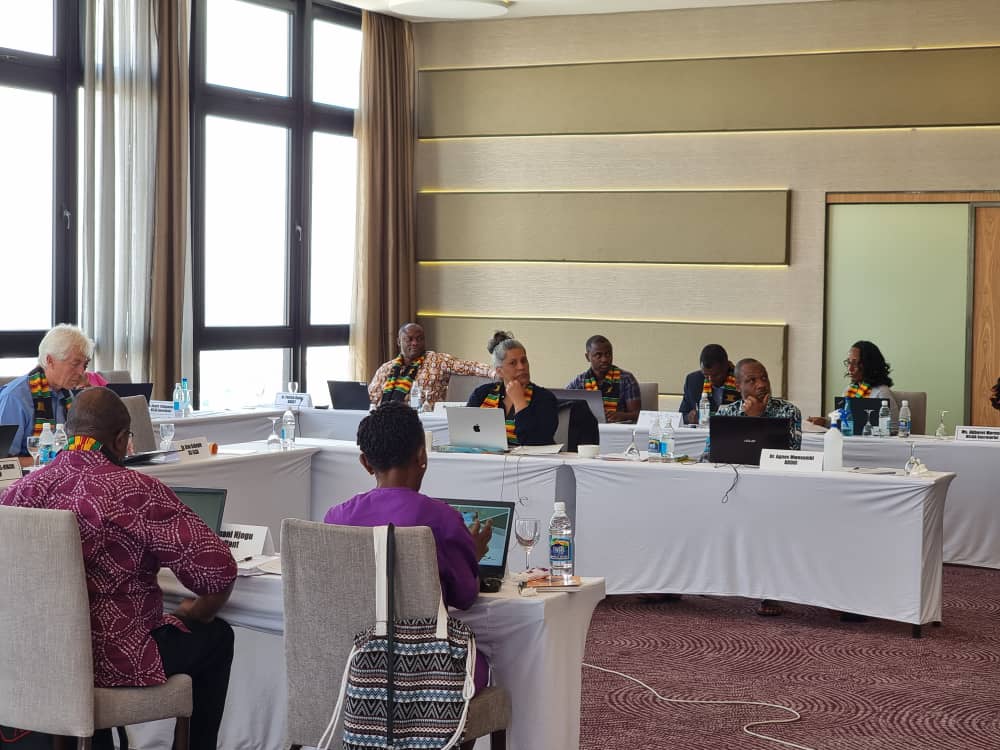
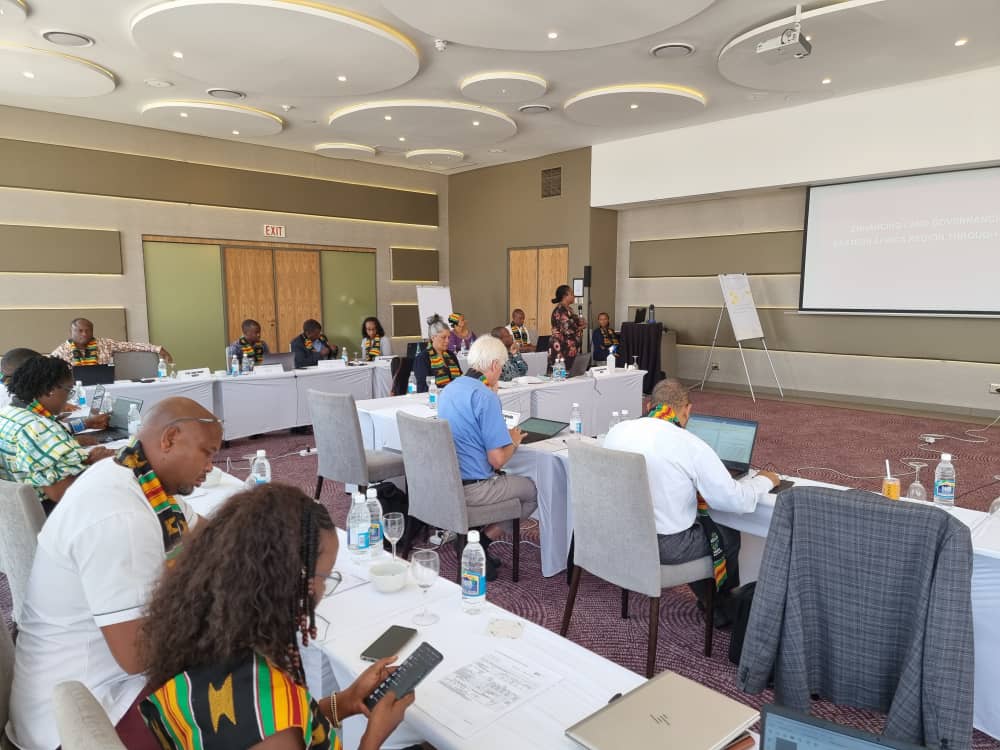
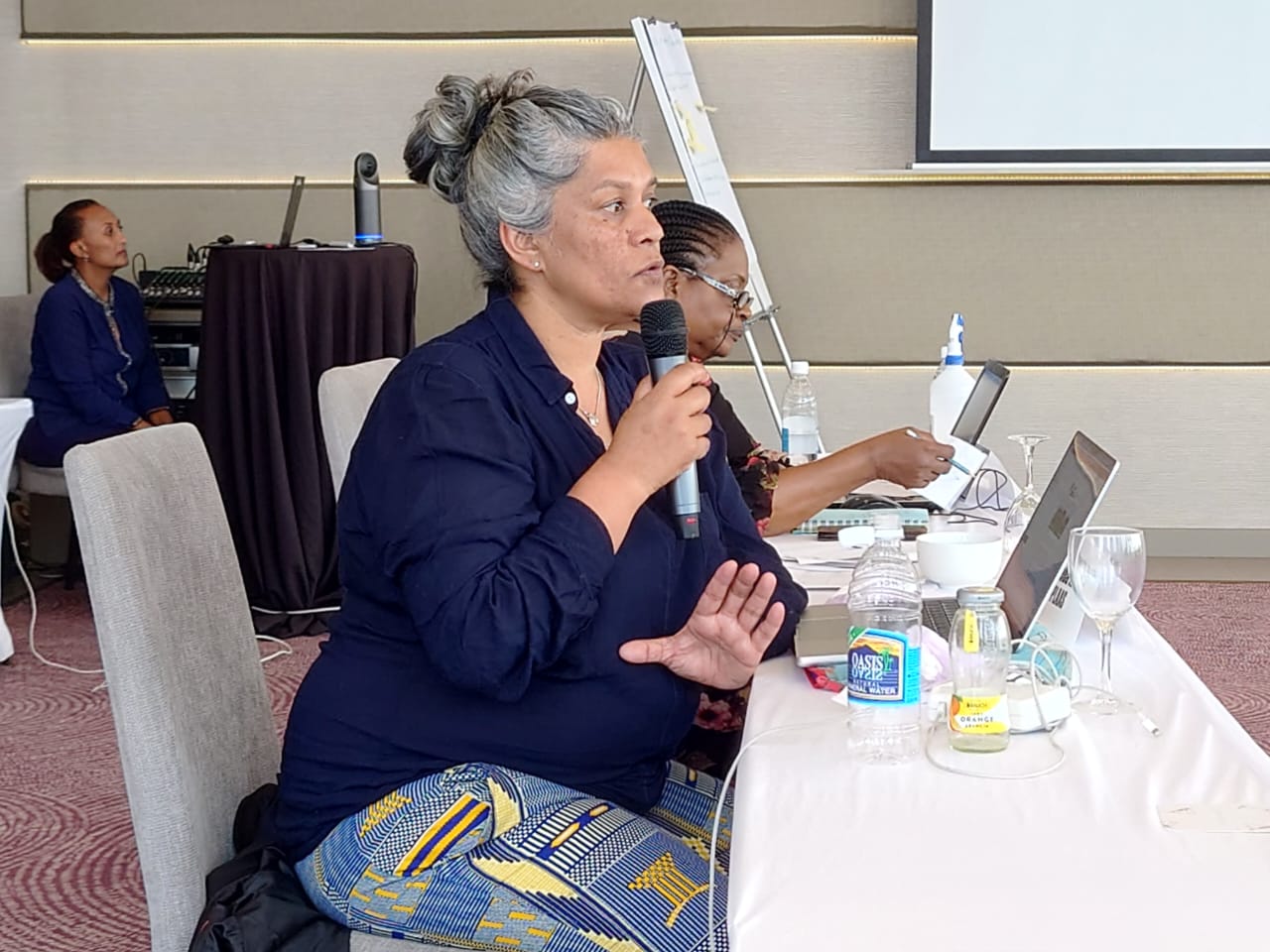
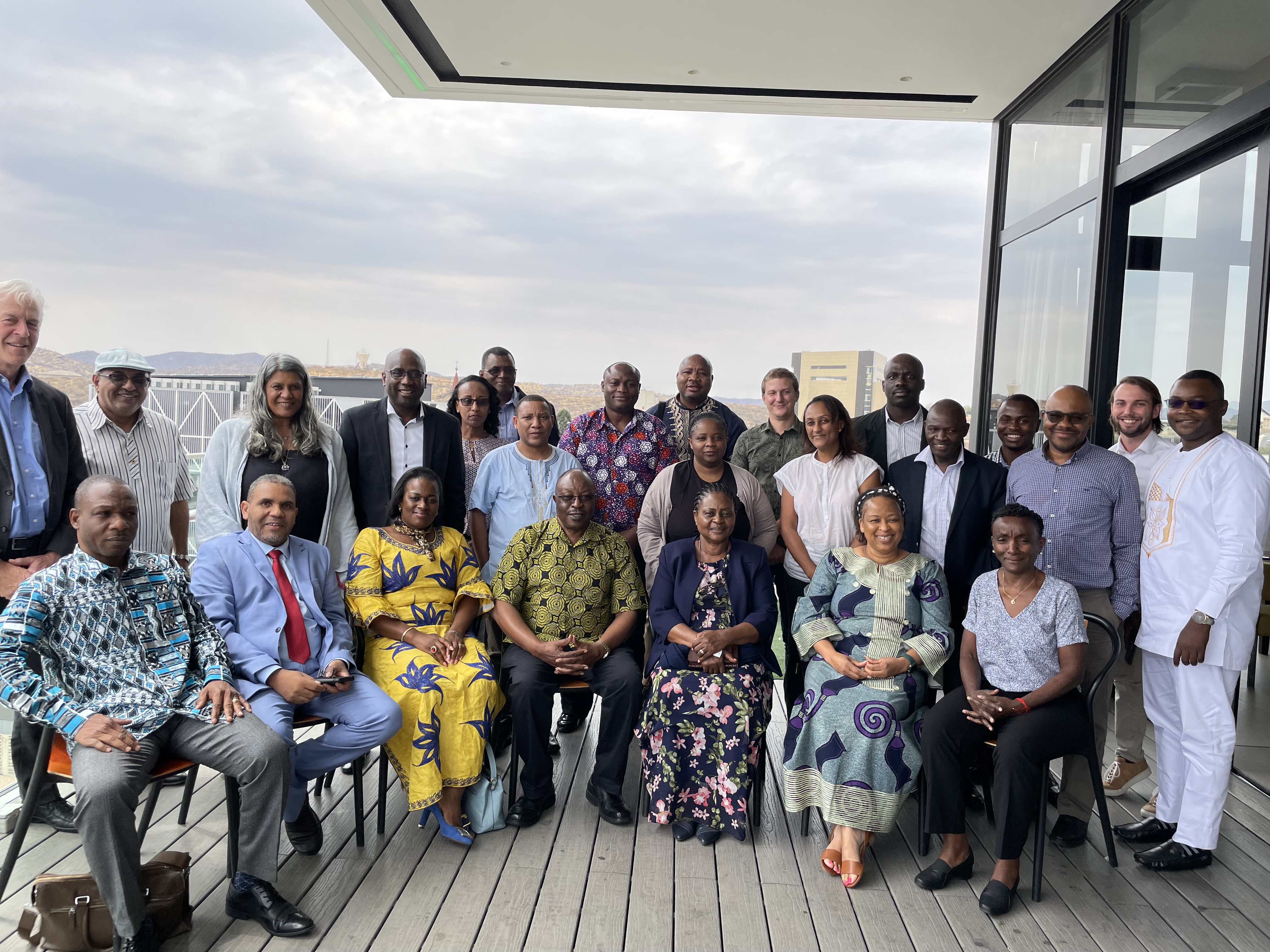
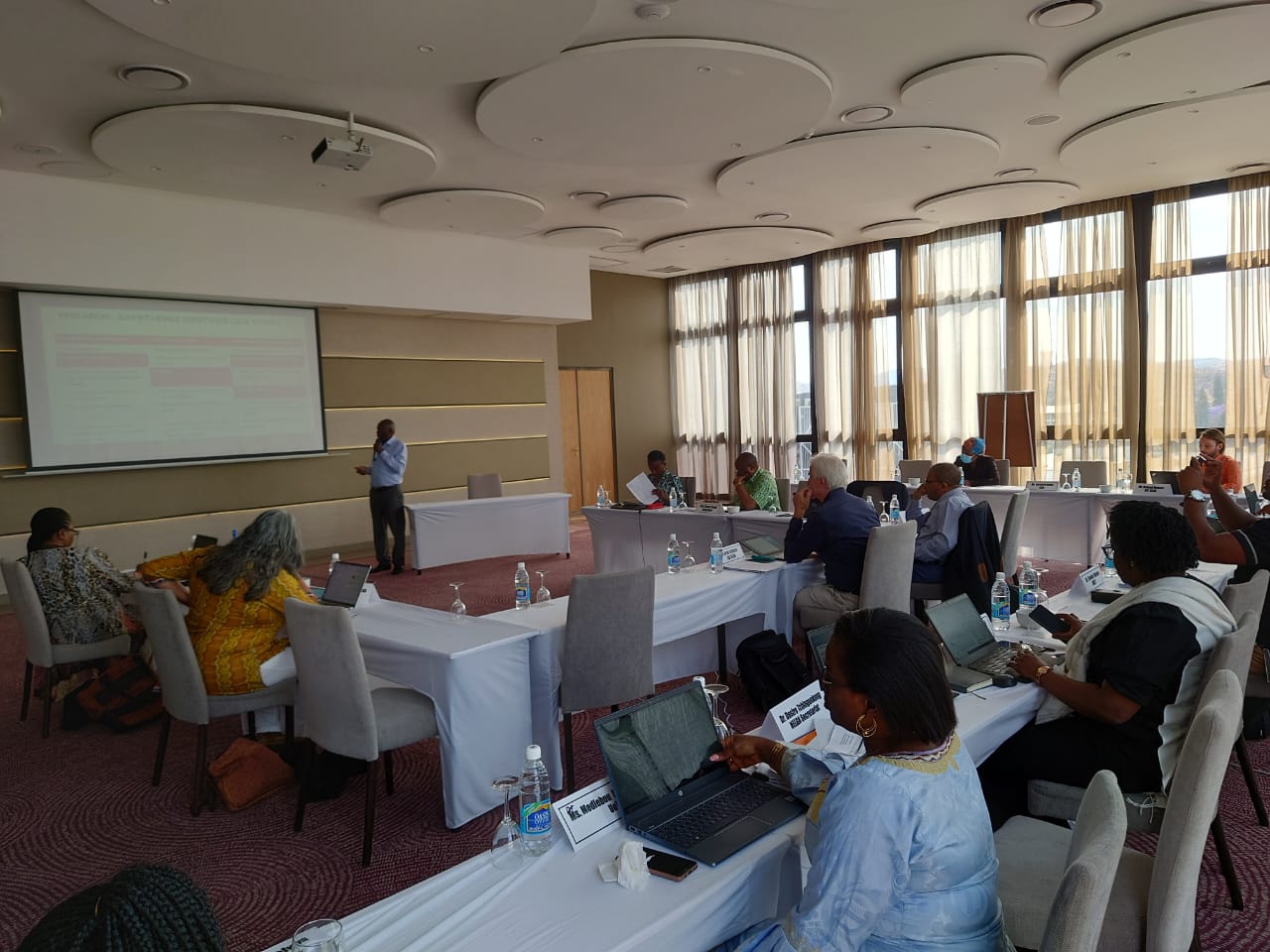
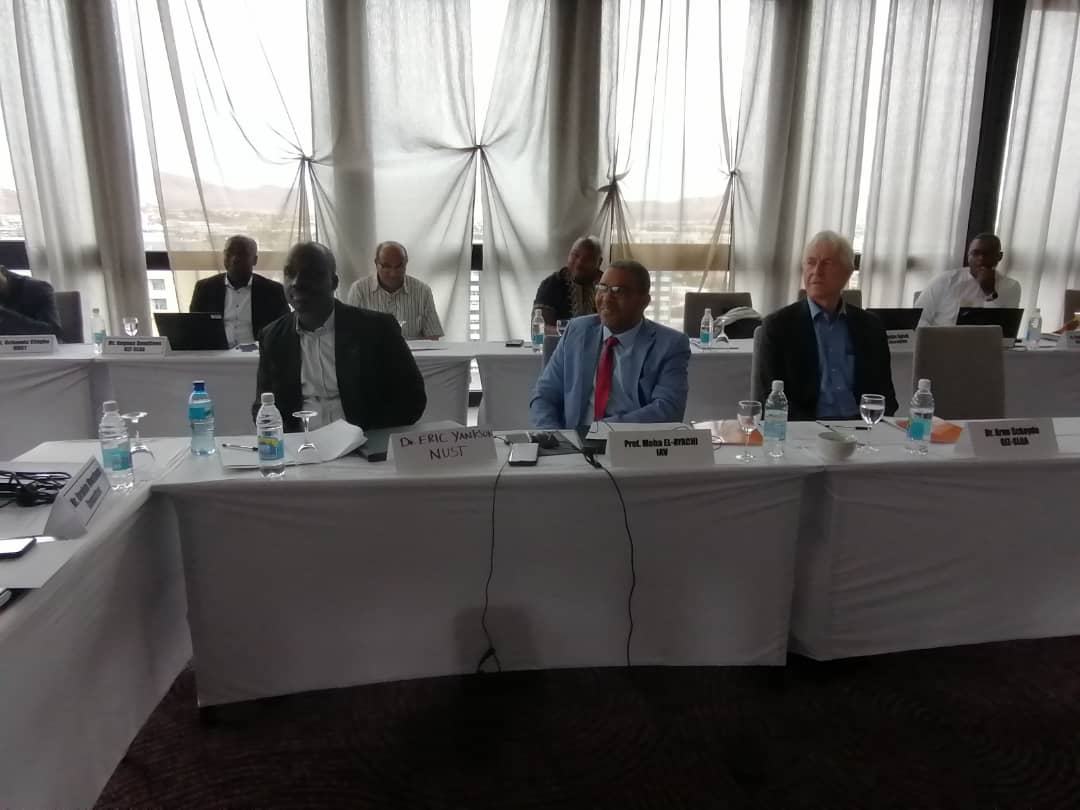
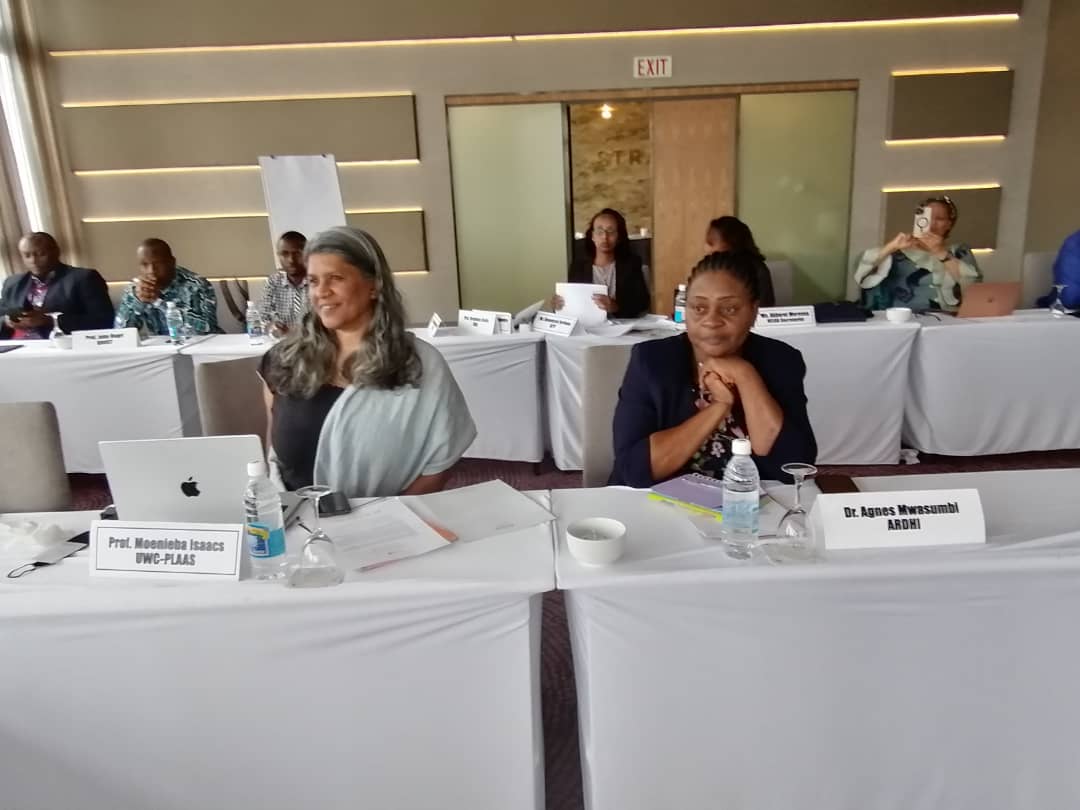
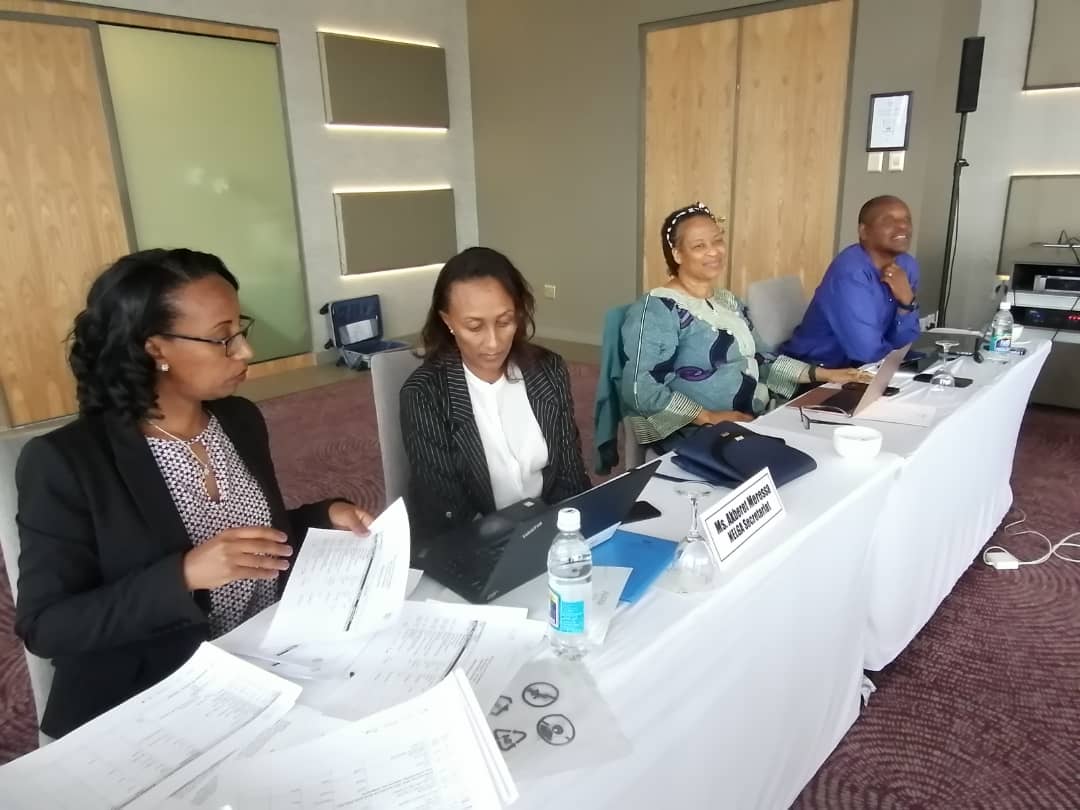
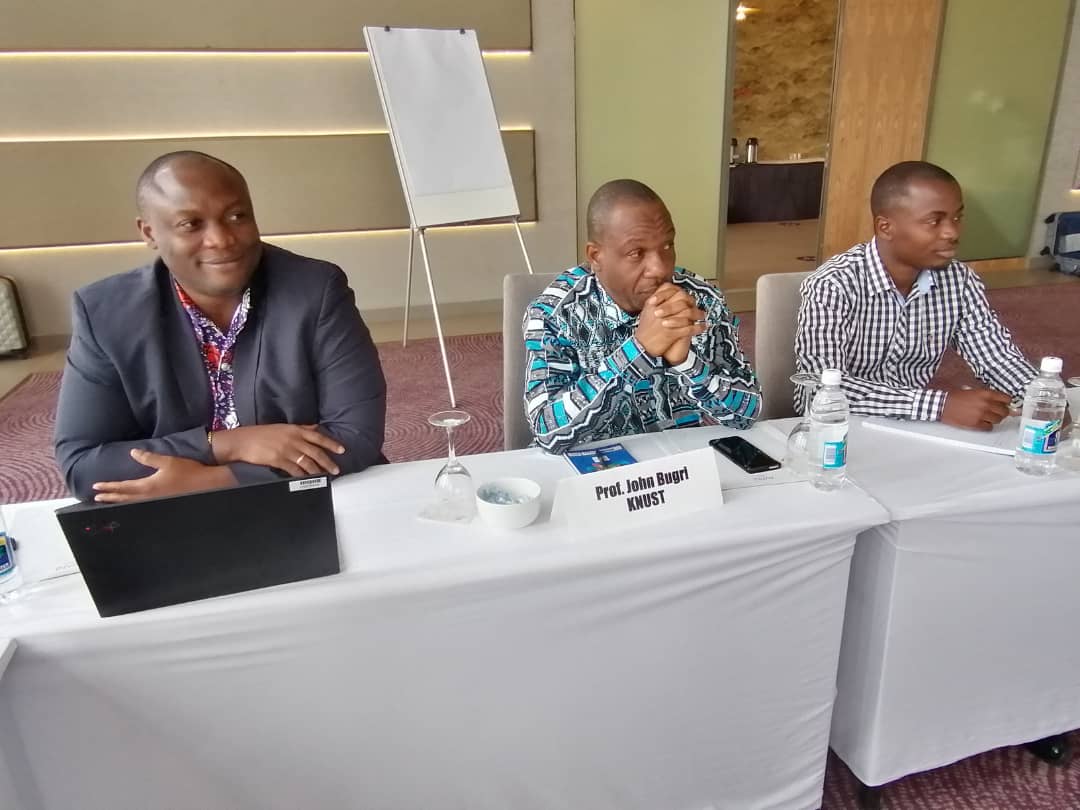
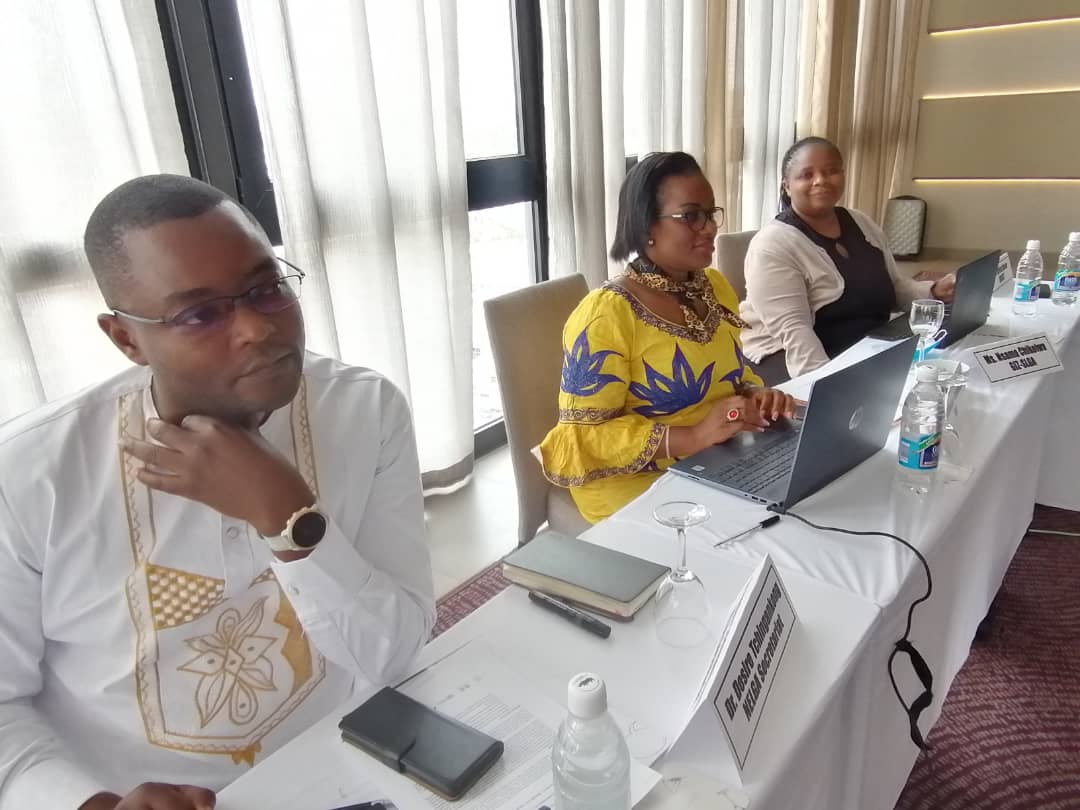
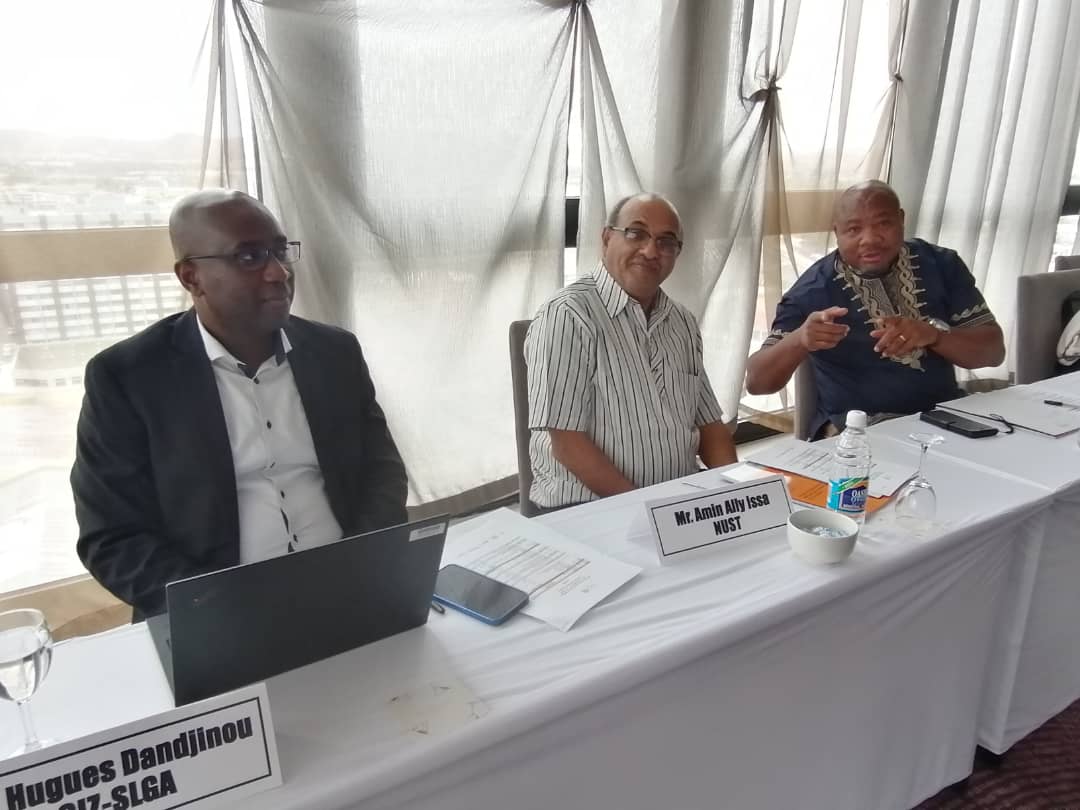
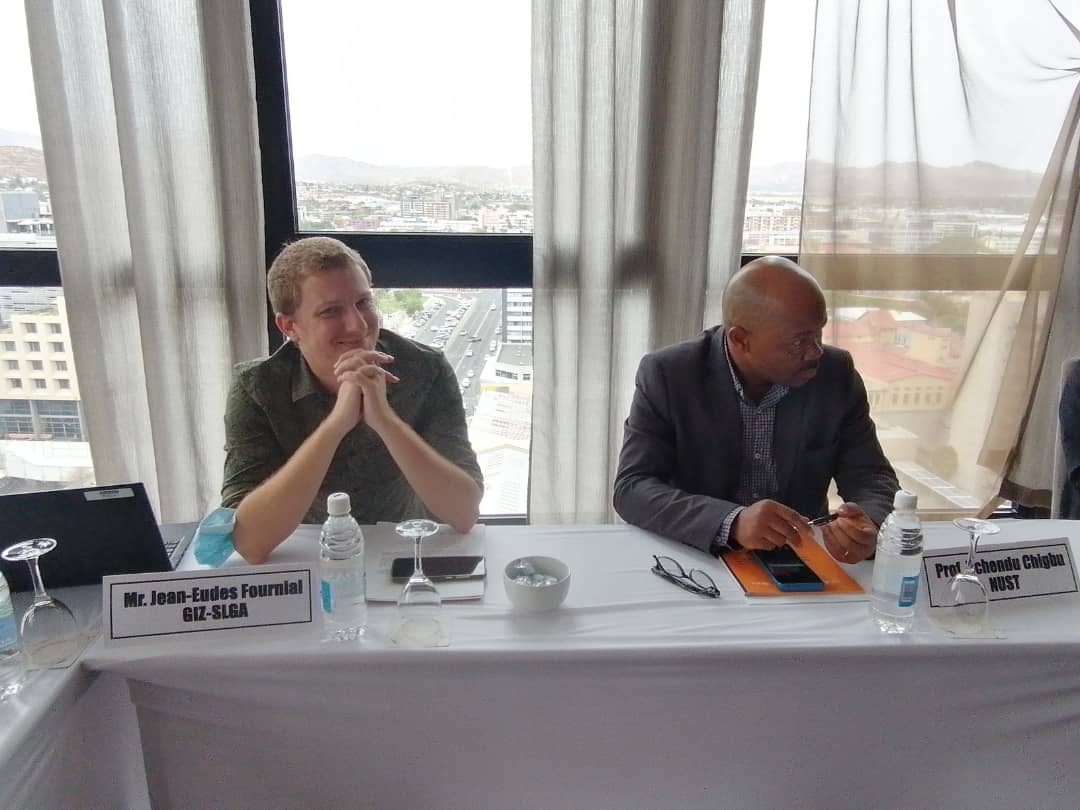
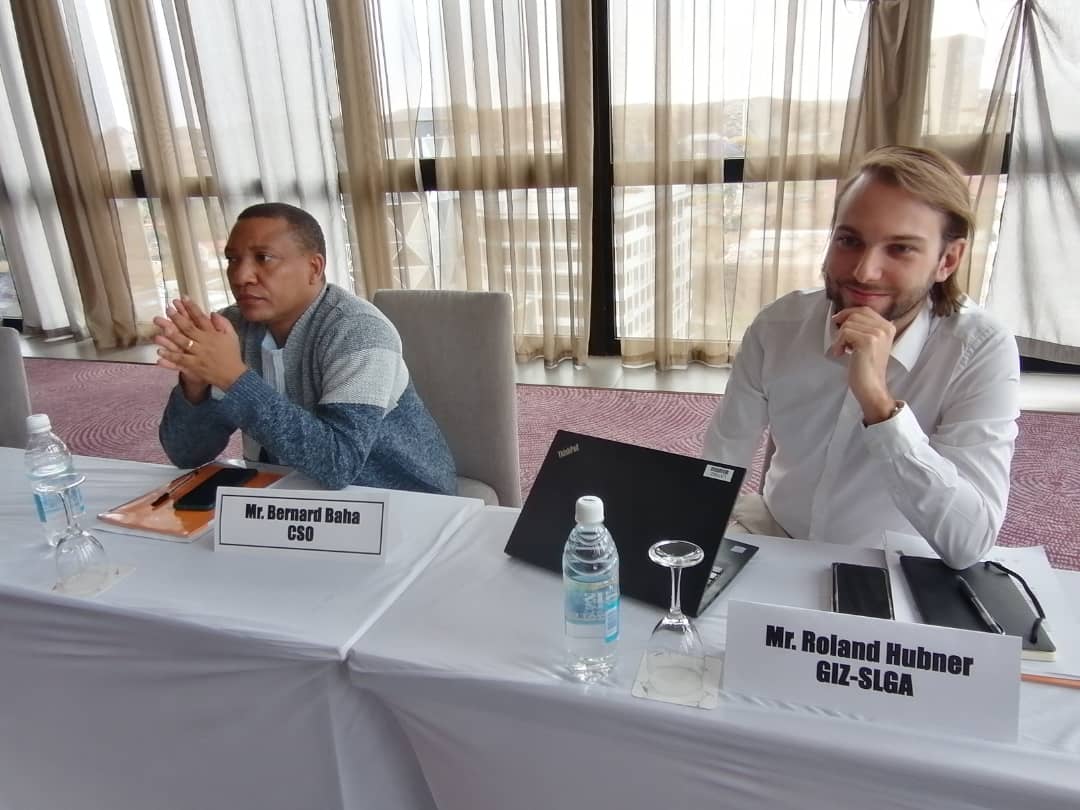
Webinaire NELGA Afrique du Nord : La blockchain au cœur du développement numérique du secteur foncier
La technologie blockchain touche progressivement à tous les secteurs dont la finance, l’énergie, l’assurance ou bien encore la santé. Il est grand temps pour la blockchain d’ancrer son innovation dans le secteur foncier afin d’y apporter la transparence, l’automatisation contractuelle et la traçabilité nécessaires sur un secteur où la preuve, l’historique exhaustif et l’authenticité sont essentielles.
Nous prenons le premier pas vers cette innovation en entamant une discussion entre les acteurs du foncier au Maroc et experts de la Blockchain dans le webinaire “La Blockchain au cÅ“ur de l’innovation numérique du foncier”.
L’Institut Agronomique et Vétérinaire Hassan II organise à travers son hub NELGA Afrique du Nord en collaboration avec ETAFAT et dans le cadre des travaux de recherche sur “L’étude de la technologie Blockchain et ses applications au Foncier : Cas du Maroc” entrepris par Rim Borija.
À travers les interventions d’experts du Maroc et de l’Afrique, nous allons introduire la Blockchain et son potentiel énorme, aux acteurs de l’écosystème foncier au Maroc.
D’éminents panéliste au rendez-vous le 22 septembre à 18h
Dr.Omar Benaicha: Chercheur en Blockchain et Transformation Digitale.
Mohammed Ibrahim Jega: co-fondateur de Domineum Blockchain Solutions.
Samir Bennani: Blockchain Consultant.
Rim Borija: Etudiante en 3ème année en Ingénierie Topographique de l’IAV Hassan II et Chercheuse en Blockchain du Foncier.
Kamal Ben Addou Idrissi: Directeur général de ETAFAT.
Moha El-Ayachi Professeur à l’IAV Hassan II et coordonnateur du réseau NELGA, Afrique du Nord.
Ce webinaire est ouvert aux IGTs du secteur privé et public, Notaires, Experts Fonciers ainsi qu’aux Experts de l’IT et la Blockchain…
Faites part d’une réflexion du futur et inscrivez vous gratuitement sur.
Date : 22 Septembre 2022
Heure: 18H
Vous êtes cordialement invités au webinaire du NELGA NA sur “La blockchain au coeur de l’évolution numérique du secteur foncier” le 22 sept. 2022 à 18:00 GMT+1
Veuillez vous inscrire via le line :
https://us02web.zoom.us/meeting/register/tZEtdOmgrDgtHt0nYq_BETV_gRc_MNRfuVv0
EAC Premiers its Regional Platform on Land
Partner States of the East Africa Community (EAC) are resolute in ensuring the implementation of the African Union (AU) Declaration on land within their respective countries. The resolution follows the sharing of best practices by the EAC Partner States during the first Regional Platform meeting held on 17-18 August 2022 in Kampala, Uganda. The platform provides EAC Partner States with an opportunity to share country lessons and best practices in land policy formulation, implementation and review to inform land reform processes in their respective countries.
“The Regional Platform is the first of its kind in the EAC and is expected to generate discussions and knowledge which will be helpful to all EAC Partner Statesâ€, explains the EAC Secretariat Director of Productive Services Jean Baptiste Havugimana. The forum discussions, he went on to explain, help to promote sustainable development and the rational utilisation of the region’s natural resources.
Joan Kagwanja, the Coordinator of the African Land Policy Centre at the Economic Commission for Africa, applauded the EAC for putting in place a Regional Steering Committee and establishing the Regional Platform, which provides a sustainable mechanism for bringing the Partner States together for the periodic sharing of lessons and dissemination of best practices in land policy formulation and implementation. She noted that land governance issues are cross-cutting within the region and reiterated the need to improve land governance in East Africa to achieve the EAC Vision 2050.
To facilitate the first Regional Platform ALPC provided technical support for a regional assessment to determine the status of land policy development in EAC Partner States. The assessment identified priority and emerging issues, along with the best practices in each of the Partner States, identifying the need for the establishment of a regional platform to facilitate the sharing of lessons and best practices. The participants appreciate the role of the Network of Excellence on Land Governance in Africa, especially the achievement of the Eastern Africa node and its universities in the land policy processes in Partner States; and the potential contribution of the network to the Regional Platform.
Government representatives from Tanzania, South Sudan, Rwanda, Uganda, Kenya and Burundi shared best practices at the forum, including the inclusion of the land rights of women, youth and other vulnerable groups in the land policies, laws and practices of Partner States. The forum called for the EAC secretariat, with the support of ALPC, to enhance capacity building and resource mobilisation for land policy formulation, implementation and review within EAC Partner States.
NOTE TO EDITORS:
The African Land Policy Centre (ALPC) is a joint programme of the tripartite consortium consisting of the African Union Commission (AUC), United Nations Economic Commission for Africa (ECA) and the African Development Bank (AfDB). Its purpose is to lead and coordinate the implementation of the AU Agenda on Land
East Africa Establish Regional Steering Committee on AU Land Agenda
Partner States (PS) from the East Africa region established a Regional Steering Committee (RSC) at the end of a three-day meeting of the Regional Technical Working Group (TWG) on the Terrestrial Ecosystem on July 28. The RSC will oversee and coordinate the implementation of the AU Declaration on land and provide policy and technical guidance to the PS and East Africa Community (EAC) Secretariat on the overall implementation of the AU land agenda. While endorsing the terms of reference for the RSC, Members at the meeting applauded the milestone as an important step and timely for land policy development, review and implementation, especially as some PS are yet to enact comprehensive land policies. The RSC will support technical working groups that will oversee implementation efforts in the region to address capacities and best practices to enhance land reforms in the region.
The African Land Policy Centre (ALPC), charged with the custodian role on the AU land agenda, provided technical support in setting up the RSC in coordination with the EAC secretariat. Joan Kagwanja, the ALPC Coordinator, also commended the TWG’s commitment to the ECA-EAC partnership and the establishment of a multi-sectoral coordination platform at national and regional levels for the PS to share experience, and information, lesson learned and best practices in land policy formulation and implementation.
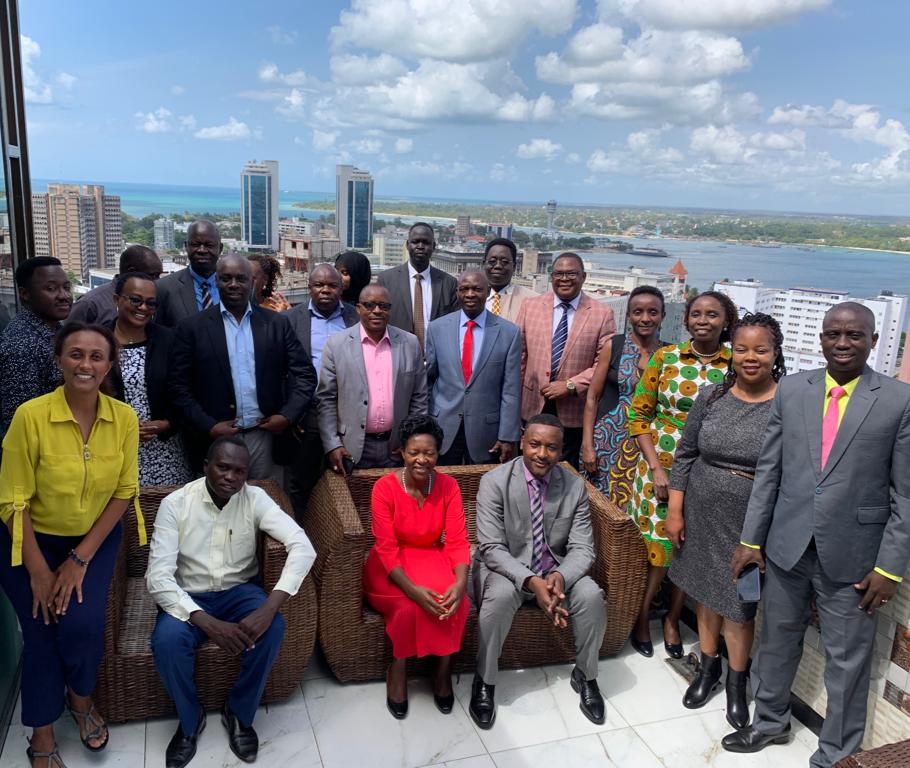
Jean Baptiste Havugimana, Director of Productive Sectors (DPS), EAC Secretariat, stressed the need for Partner States to cooperate in implementing the AU land agenda. He shared insights on the progress made in the EAC region on land governance while stressing the importance of operationalizing the regional land platform by the end of 2022 as it is a crucial directive by the 8th Sectoral Council on Environment and Natural Resources Management.
On capacity development, the PS called on the EAC Secretariat and ALPC to build the capacity of the PS on the AU declaration. They also requested the full engagement of existing Centers of Excellence (CoE) in knowledge sharing that forms the basis for policy review and development, especially as the Centers of Excellence have sectoral knowledge. This will ensure mutual learning and understanding of expectations and support their policies’ alignment with the Framework and Guidelines on Land Policy in Africa.
Moving forward, the PS agreed to hold the first meeting for the RSC in August to discuss the capacity development road map and the coordination role of the RSC to assume leadership.
Partner States Experts’, drawn from ministries and institutions responsible for EAC affairs, land policies development, land use planning and administration, and environment and natural resources management from Tanzania, Kenya, South Sudan, Uganda and Rwanda, attended the meeting.
NELGA, DAAD Announce Second Summer School on Land Governance in Ghana
In February 2019, NELGA held its scholarship holders’ first summer school and research development workshop in Ghana. Hosted by NELGA Anglophone West Africa (AWA) node under Kwame Nkrumah University of Science and Technology (KNUST), the workshop sets the stage for NELGADAAD-scholarship holders to meet experts in land governance, learn and share ideas and network among NELGA scholars and trainers. The first edition of the summer school provided the platform for in-house training on different tools for research data collection and analysis.
Following the success of the 2019 edition, NELGA AWA will organize a second summer school in 2022 to provide further assistance to scholarship holders in personal branding, mentorship and entrepreneurship, which are essential for preparing scholarship holders for the job market. The aim of the summer school is also to allow the NELGA-DAAD scholarship holders to present and discuss their research work, methodological design and preliminary results in a constructive atmosphere. Candidates will receive feedback from external experts, fellow candidates and supervisors. KNUST will compile the experiences of alumni from which current scholarship holders can learn and benefit. At the end of the summer school, a platform will be created and sustained where fellows and alumni will interact and receive regular information and updates on land governance issues, job vacancies, scholarship opportunities for further training and other career development prospects.
Against these backgrounds, the summer school will discuss different concepts, theories and epistemological approaches with supervisors, external experts and researchers; Introduce scholars to time management; Introduce scholars to the art of writing successful research thesis and getting published; Prepare scholarship holders for the job market; and Foster collaboration and networking among scholars, KNUST, and alumni.
Click here to view the course content, trainers, schedule, assessment and other information.
For more information, contact: Patrick.Opoku@giz.de
NELGA DAAD Announces Second Summer School on Land Governance in Ghana
In February 2019, NELGA held its scholarship holders’ first summer school and research development workshop in Ghana. Hosted by the NELGA Anglophone West Africa (AWA) node (Kwame Nkrumah University of Science and Technology (KNUST)), the workshop sets the stage for NELGA DAAD-scholarship holders to meet experts in land governance, learn and share ideas and network with NELGA scholars and trainers. This first edition of the summer school provided a platform for in-house training on different tools for research data collection and analysis.
Following the success of the 2019 edition, NELGA AWA will organize a second summer school in 2022 to provide further assistance to scholarship holders in personal branding, mentorship and entrepreneurship, which are essential for preparing scholarship holders for the job market. The aim of the summer school is also to allow the NELGA-DAAD scholarship holders to present and discuss their research work, methodological design and preliminary results in a constructive atmosphere. Candidates will receive feedback from external experts, fellow candidates and supervisors. KNUST will compile the experiences of alumni from which current scholarship holders can learn and benefit. At the end of the summer school, a platform will be created and sustained where fellows and alumni will interact and receive regular information and updates on land governance issues, job vacancies, scholarship opportunities for further training and other career development prospects.
Against these backgrounds, the summer school will discuss different concepts, theories and epistemological approaches with supervisors, external experts and researchers; Introduce scholars to time management; Introduce scholars to the art of writing successful research thesis and getting published; Prepare scholarship holders for the job market; and Foster collaboration and networking among scholars, KNUST, and alumni.
Click here to view the course content, trainers, schedule, assessment and other information.
For more information, contact: Patrick.Opoku@giz.de
